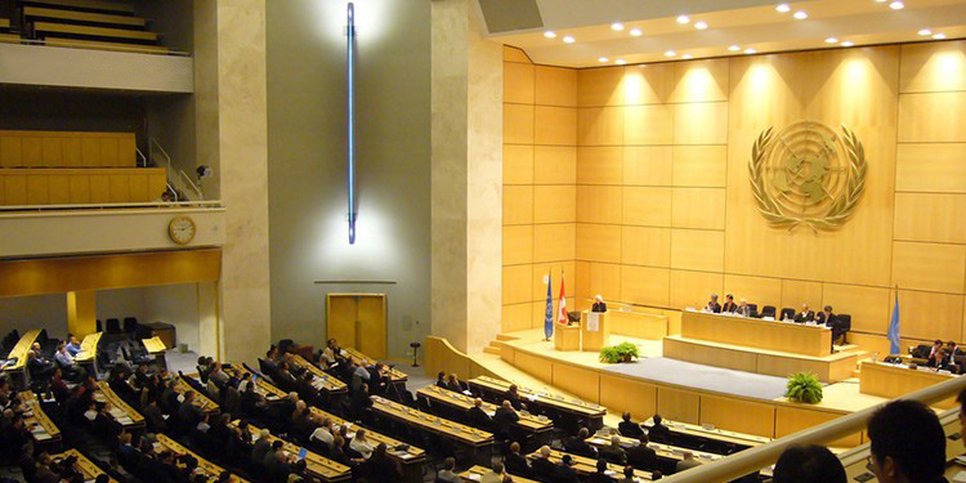Photo source: K.Jakubowska / Shutterstock.com
Photo source: K.Jakubowska / Shutterstock.com
The only basis for all accusations of "extremism" against Jehovah's Witnesses — the Federal List of Extremist Materials — can be revoked. The UN Committee on the Elimination of Racial Discrimination (CERD) called on Russia to do so in its Recommendation of August 25, 2017.
The UN Committee is concerned about the unclear definition of extremist activity and the lack of clear criteria by which materials can be classified as extremist, which is used against vulnerable segments of the population.
The international community unanimously condemned the accusations of extremism and the ban imposed by a Russian court on Jehovah's Witnesses organizations. This is evident from the following official statements.
"On July 17, the Russian Supreme Court upheld a decision to liquidate all legal entities of Jehovah's Witnesses in Russia, cease their activities and confiscate property on charges of "extremist activity." The decision confirms the ban on the peaceful worship of Jehovah's Witnesses throughout the country. This ban has already led to cases of criminal prosecution of Jehovah's Witnesses, as well as police raids on their prayer halls. It has contributed to an atmosphere of hatred and bullying, which has led to arson attacks and other forms of harassment. Jehovah's Witnesses, like all followers of religious groups, must be able to peacefully enjoy freedom of assembly without interference, as guaranteed by the Constitution of the Russian Federation, as well as by Russia's international obligations and international human rights standards."
"We are concerned by the approval of the court decision to ban the activities of Jehovah's Witnesses in Russia. Thus, despite our attempts at persuasion at all levels, the peaceful exercise of the right to freedom of religion and thought has become punishable."
"The Russian Supreme Court's decision against Jehovah's Witnesses this week is the latest in a disturbing trend of persecution of religious minorities. We call on the Russian authorities to lift the ban on Jehovah's Witnesses in Russia, lift the closure of the Jehovah's Witnesses Administrative Center, and release all members of religious minorities who continue to be unjustly detained for so-called 'extremist' activities."
"We are deeply concerned that the Supreme Court of the Russian Federation rejected the appeal of Jehovah's Witnesses against the decision that labeled them "extremists". This ruling criminalizes the religious activities of more than 175,000 Russian citizens and contravenes the right to religious freedom that is protected by the Russian Constitution."
"Jehovah's Witnesses, like all other religious groups, must be able to peacefully enjoy freedom of assembly without interference, as guaranteed by the Constitution of the Russian Federation, as well as by Russia's international commitments and international human rights standards."
"Unfortunately, the Supreme Court's decision demonstrates the government's continued attempts to equate those who peacefully exercise the right to religious freedom with extremists. Jehovah's Witnesses are not an extremist group and should be able to practice their religion openly, freely and without pressure from the authorities."
"I... asked Mr. President to exert his influence to ensure the preservation of the rights of minorities. This also applies to Jehovah's Witnesses."
"I am concerned about the unjustified criminalization of the peaceful activities of members of the Jehovah's Witnesses communities in Russia, the liquidation of this community in the country. This Supreme Court decision poses a threat to the values and principles on which democratic, free, open, pluralistic and tolerant societies are founded."
"This ban, the persecution of peaceful people for mere worship, clearly violates the fundamental right to freedom of religion, and with it international human rights standards guaranteed by the Constitution of the Russian Federation, so it needs to be reviewed as soon as possible."
"The recent decision of the Supreme Court to declare the Administrative Center of Jehovah's Witnesses in the Russian Federation an extremist organization, to close it and 395 local religious organizations of the Witnesses, raises serious concerns about religious freedom in Russia, and also serves as another example of how anti-extremist legislation is used to suppress freedom of expression and peaceful assembly."
"Russia's failure to respect religious freedom is yet another inexcusable violation of Moscow's OSCE commitments. People who practice their faith peacefully should never be harassed, fined, or imprisoned. The court order to confiscate the property of Jehovah's Witnesses adds humiliation to the persecution. It is hoped that this case will be appealed to the European Court of Human Rights."
"Yesterday's decision of the Supreme Court of the Russian Federation to ban the activities of the Administrative Center of Jehovah's Witnesses in Russia on grounds of "extremism" paves the way for criminal prosecution of members of the organization of Jehovah's Witnesses for the mere practice of their religion. Jehovah's Witnesses, like all other religious groups, must be able to peacefully enjoy freedom of assembly without interference, as guaranteed by the Constitution of the Russian Federation, as well as by Russia's international commitments and international human rights standards."
"The decision of the Supreme Court of Russia to recognize the organization of Jehovah's Witnesses as extremist is alarming. This ruling effectively criminalizes the peaceful worship of 175,000 Russian citizens and contravenes the right to religious freedom enshrined in the Russian Constitution. The UK calls on the Russian government to uphold its commitment to this basic human right."
